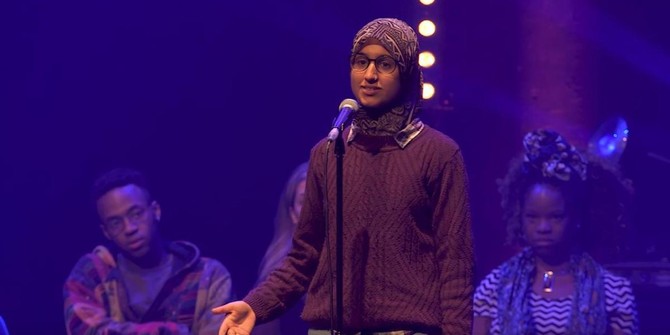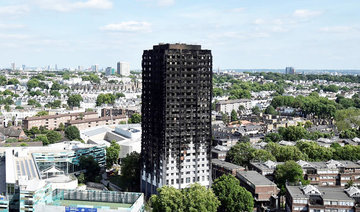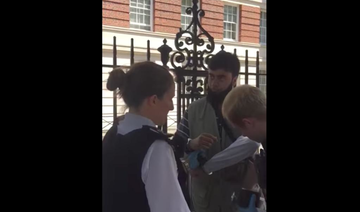JEDDAH: With the growing rates of Islamophobia across the world, Muslims often find themselves in a position where they feel obliged to apologize for any terrorist attack carried out by so-called Muslims, but Suhaiymah Manzoor-Khan has a different take on this matter.
The unapologetic 22-year-old Muslim took to the stage to express her frustration in a powerful message to Islamophobes. “If you need me to prove my humanity, I’m not the one that’s not human.”
Manzoor-Khan’s eloquent poem, titled “This is Not A Humanizing Poem,” took the Roundhouse Poetry Slam’s stage by storm as she won second place.
“This will not be a ‘Muslims are like us’ poem. I refuse to be respectable,” Manzoor-Khan said in her poem. “Instead, love us when we’re lazy. Love us when we’re poor. Love us in our back-to-back council estate, depressed and washed and weeping.”
Manzoor-Khan said that her poem was overwhelmingly well-received by the audience. “The reaction so far has been phenomenally generous and very supportive,” she told Arab News. “I think the poem really resonated with people as I’ve seen a lot of comments and shares where people are really happy I put something they’ve been feeling for a long time into words.”
Manzoor-Khan, who has been performing for three years, usually writes poems that, to some extent, touch her very essence as a Muslim. “I think being Muslim is bound up with being who I am so all of my poems have relevance to being Muslim to some extent,” she said. “But this is the first poem which does so explicitly.”
The deep message Manzoor-Khan wanted to send through her well-spoken performance was to capture how suffocating it is to always have to respond to negative narratives and to be able to only exist as either a “good” Muslim, or a “bad” one, she said. “I wanted to provoke and show people that the burden of proving our humanity should not rest with Muslims, but that the narratives which dehumanize us, and the politics and wars and surveillance they enable — are what we need to focus on more,” she stressed.
“Love us high as kites, unemployed, joy riding, time wasting, failing at school. Love us filthy, without the right color passports, without the right-sounding English,” she said while performing on the Roundhouse stage.
Initially, Muslims were not the target audience the second place runner-up was addressing through her poem, but “non-Muslims as the aim of the poem was to provoke and unsettle,” she explained adding that she is ”very glad and humbled that it has also become somewhat of a point of solidarity for other Muslims.”
Hijab-wearing Manzoor-Khan has often been subjected to profiling in her surroundings like many non-white Muslims. “I am always instantly read and judged as all people are, but because I am visibly Muslim and not white, that judgment is often made within a wider context which portrays Muslims as threatening and problematic,” she said, “[a context] that portrays Muslim women in particular as submissive and passive,” which leads people to often underestimate her capabilities or “make insidious remarks and assumptions about my heritage or religion.”
The three-minute video of Manzoor-Khan’s bold performance has been viewed 1.7 million times on Facebook alone. “My mother texts me too after BBC news alerts. ‘Are you safe? Let me know you’re home okay.’ And she means safe from the incident, yes, but also from the after effects,” she said.
Britain suffered three consecutive terror attacks this year, one of which targeted Muslims near the Finsbury Park Mosque killing one man and injuring at least ten people during the holy month of Ramadan.













